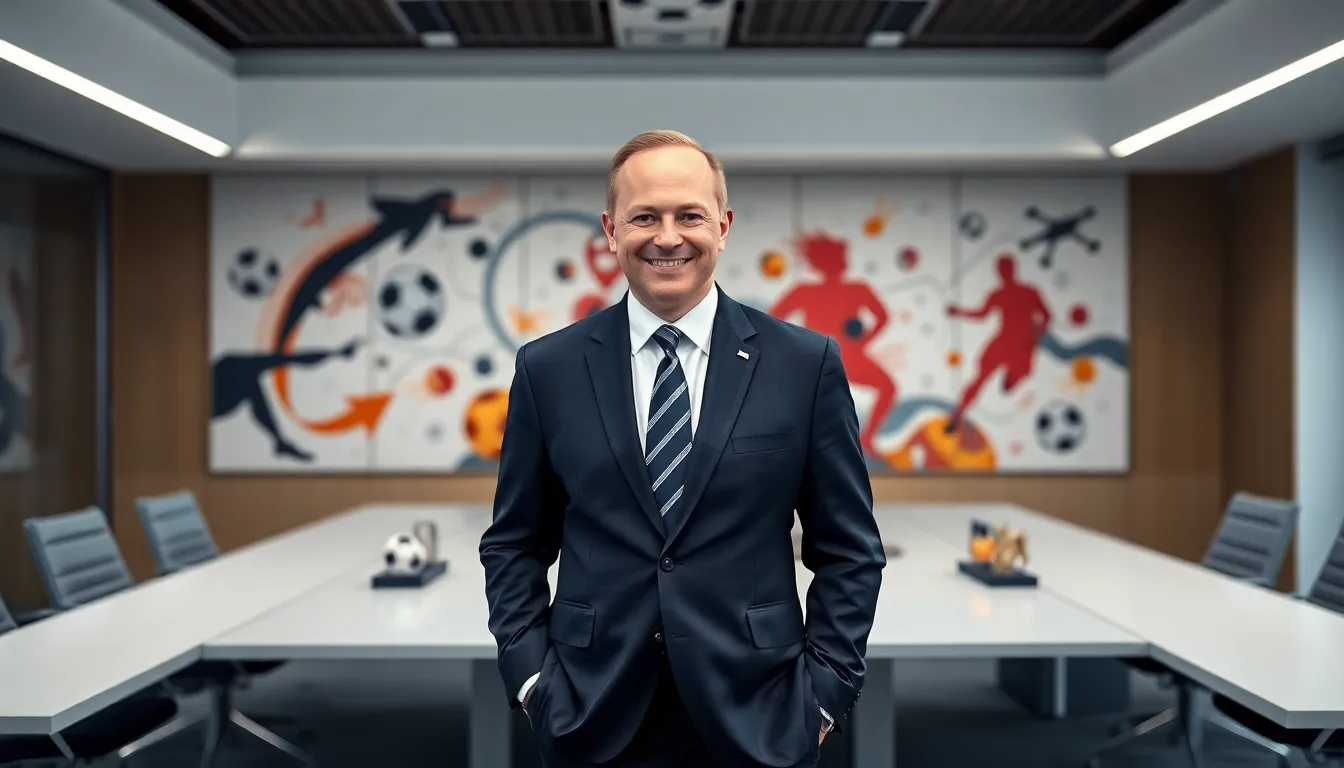Table of Contents
ToggleWhen it comes to the world of football, few names stand out as prominently as Gianni Infantino. You may be wondering who this man is and why he seems to be everywhere in discussions about the beautiful game. After all, it’s not every day that someone walks into the colossal shoes of FIFA’s presidency, right? This article offers a deep jump into Infantino’s journey, his leadership style, and the many initiatives he has spearheaded. Buckle up as we explore the intriguing realm of Gianni Infantino, without losing our sense of humor, or our love for the game.
Background and Early Life

Gianni Infantino was born on March 23, 1970, in Brig, a small town nestled in the Swiss Alps. Growing up in a family that held strong ties to football, his passion for the sport was ignited at a young age. His father worked as a simple storekeeper, while his mother took on various roles, including a teacher. This nurturing environment laid the foundation for a young Gianni to dream big. After completing his studies, he pursued law at the University of Fribourg, a decision that would later prove vital in navigating the complex world of sports governance.
His multilingual capabilities are impressive: he speaks Italian, French, German, and English fluently, which not only showcases his diversity but also highlights his ability to connect with football communities worldwide. This background set Infantino on a path that would lead to significant change in global football.
Career in Football Administration
Infantino’s career in football administration began in earnest in the late 1990s, where he initially worked with the Swiss Football Association. His knack for negotiation and policy-making led him straight to the UEFA door, where he played a crucial role in various capacities, eventually serving as UEFA’s General Secretary from 2016.
His tenure at UEFA sharpened his operational skills and deepened his understanding of the intricacies involved in managing a major football organization. During this time, he spearheaded initiatives like the UEFA Financial Fair Play regulations, demonstrating a commitment to maintaining the sport’s integrity. In 2016, he ascended to the position of FIFA President, winning the election after Sepp Blatter’s controversial departure.
Leadership Style and Vision for FIFA
Infantino’s leadership style is characterized by an approachable demeanor and a genuine passion for the game. He sees himself as a bridge-builder, aiming to connect various factions within the football world. His vision for FIFA can be summed up in three words: global, inclusive, and progressive.
He firmly believes in the potential for football to unify people across the globe, advocating for the sport to reach every corner of the earth. Under his leadership, FIFA has focused on bringing more nations into major tournaments, including expanding the World Cup to 48 teams beginning in 2026. This decision embodies his commitment to inclusivity.
Major Initiatives and Changes Under Infantino’s Presidency
Since taking office, Infantino has introduced several initiatives aimed at modernizing FIFA and promoting fair play. One of his most significant projects is the introduction of the FIFA Forward program, which allocates a substantial budget to help national associations develop their programs. This initiative aims to enhance the grassroots level, ensuring football’s sustainability at all levels.
Also, Infantino has been a strong advocate for technology in football, notably supporting the introduction of Video Assistant Referees (VAR). While this tool has its critics, it represents a shift toward more transparent decision-making on the pitch, enhancing the game’s integrity.
Controversies and Criticisms
But, Infantino’s presidency has not been without its controversies. Critics have pointed to FIFA’s ongoing issues with corruption, questioning whether Infantino has done enough to cleanse the organization’s tarnished reputation. His handling of various human rights issues, particularly concerning World Cup preparations in Qatar, has also drawn ire. Critics argue that more should be done to ensure the safety and rights of workers.
Even though these challenges, Infantino seems resolute, continuously insisting that FIFA is moving toward a more transparent and accountable future. Yet, skeptics remain and question whether the actions match the rhetoric.
Infantino’s Impact on Global Football
Gianni Infantino’s impact on global football extends beyond policy changes: it encompasses a vision of unity. His attempts to broaden football’s reach have made significant strides in promoting the game in continents like Africa and Asia, pushing for grassroots initiatives that foster young talent.
Also, his commitment to gender equality in football showcases his understanding of modern societal values. By increasing funding for women’s football and striving for parity in tournaments and platforms, Infantino is not just a president: he is a champion for equity in sports.
The Future of FIFA Under Gianni Infantino
As we look to the future, Infantino’s plans for FIFA continue to unfold. The upcoming World Cup expansion is already creating ripples of excitement, and if done effectively, this could change the landscape of international football. Gianni aims to make the tournament even more accessible, engaging a broader audience.
Besides, with an increasing focus on sustainability, Infantino is likely to push initiatives that promote eco-friendly practices in the sport. This aligns with a growing trend in global sports management, emphasizing responsibility alongside entertainment.






